
THE CONGRESS HAD been in a celebratory mood since October 5, when the exit polls unanimously predicted its victory in Haryana and gave it a chance at forming a coalition government in Jammu and Kashmir. Drum beats and the sound of crackers filled the air at the party headquarters in Delhi in the morning of October 8, the counting day, when early trends favoured the party.
The celebrations soon turned out to be an embarrassment, as the BJP took lead. By noon, the party office fell silent. Just three months after a spirited performance in the Lok Sabha elections, the party was yet again left to deal with the rather familiar situation of an electoral defeat.
The Congress was optimistic about doing well in the assembly polls. Victory in the state elections would have enhanced doubts about Brand Modi and the stability of the BJP-led Central government. It would also have strengthened the leadership credentials of Rahul Gandhi and increased the party’s heft in the Indian National Developmental Inclusive Alliance (INDIA).
However, the defeat in Haryana and the underwhelming performance in Jammu and Kashmir have come as a sobering experience. The debacle in Haryana, particularly, is stinging. A victory against the BJP in the Hindi belt would have given the party a big morale booster amid its poor record in direct contests against the BJP, and also a second state to rule north of the Vindhyas. It would also have set the tone for the next round of elections, with Maharashtra and Jharkhand scheduled for polls in November. The party could have bargained harder for seats with its alliance partners from a position of strength. Noises are already being made by the partners in Maharashtra that the party needs to shed its big brother mentality and be more realistic in the seat-sharing discussions.
Diese Geschichte stammt aus der October 20, 2024-Ausgabe von THE WEEK India.
Starten Sie Ihre 7-tägige kostenlose Testversion von Magzter GOLD, um auf Tausende kuratierte Premium-Storys sowie über 8.000 Zeitschriften und Zeitungen zuzugreifen.
Bereits Abonnent ? Anmelden
Diese Geschichte stammt aus der October 20, 2024-Ausgabe von THE WEEK India.
Starten Sie Ihre 7-tägige kostenlose Testversion von Magzter GOLD, um auf Tausende kuratierte Premium-Storys sowie über 8.000 Zeitschriften und Zeitungen zuzugreifen.
Bereits Abonnent? Anmelden
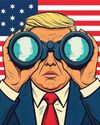
Why Trump covets Greenland
There’s no denying it. Donald Trump is a prince among real estate developers, known for his pushy, winner-takes-all approach.
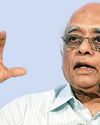
Bomb man who kept his mouth shut
The best thing about Rajagopala Chidambaram, who passed away recently, was that he “could keep his mouth shut”, as his mentor Raja Ramanna wrote in his memoir, Years of Pilgrimage. No wonder, he tested six atom bombs with no CIA, ISI or satellite spy eyes getting any wiser beforehand.
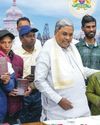
Extreme to mainstream
With the recent surrender of six Naxals, Chief Minister Siddaramaiah declares Karnataka almost “Naxal-free”. The BJP is questioning his “closeness” to the far left

SUMMITS, SURVIVAL AND SERVICE
Mountaineering expeditions play a crucial role in mountain warfare training
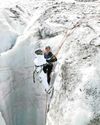
EYES ON THE ICE
THE INDIAN ARMY TRAINS ITS MOUNTAIN WARRIORS AT THE MACHOI GLACIER WHERE THEY LEARN ICE AND SNOW CRAFT IN SUB-ZERO TEMPERATURES. THE HIGH ALTITUDE WARFARE SCHOOL IN GULMARG PREPARES THEM FOR WARS THAT ARE DRIVEN BY TECHNOLOGY AND INTELLIGENCE. ON SNOW-COVERED BATTLEFIELDS LIKE THE HIMALAYAS, THE ARMY WANTS ITS JUNIOR LEADERSHIP TO BECOME DECISION-MAKERS AT THE TACTICAL LEVEL
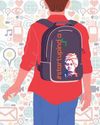
Time to dream big
Every year, January 12 is celebrated as National Youth Day—as homage to the birth anniversary of Swami Vivekananda, honouring his enduring teachings and visionary ideas.
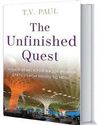
Climbing the power ladder
In his latest book, T.V. Paul explores India's search for its day in the sun as a global power

Howdy, rowdies
The world is already exhausted, and Donald Trump has not even begun his second term.

The going gets rough
It’s been a very macho fortnight
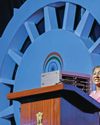
Eastward Ho!
Odisha, which hosted this year's Pravasi Bharatiya Divas, is emerging as a focal point for India's Act East Policy, given the turmoil in the northeast